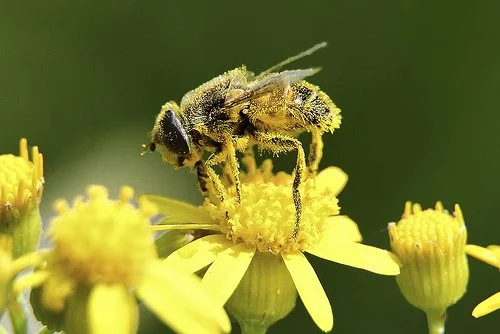

Environment
Ecosystem services: if they are so important, why did no one notice them before?
Claire Wansbury and Veronica Lawrie, from consultancy firm Atkins, write how ecosystem services – the things that the nature does for us for free, like pollination – are not disconnected from the economy.
Ecosystem services are the benefits that people obtain from the natural environment. There is growing recognition by policymakers and businesses that natural capital, which provides these ecosystem services, is the ‘missing link’ in classical economics.
For many ecosystem services, the value that they provide and the costs that result from damage to natural capital from which they derive are not captured in economic analysis.
You may wonder why we did not notice ecosystem services before. In reality, while the term is new, the importance of these ecosystem services and the need to protect the natural capital that supports them has been recognised for far longer by forward-looking businesses and thought leaders.
For example, before the first world war, a Pembrokeshire brewery owner bought a farm. He did so to gain control of the land from which groundwater flowed into the well supplying his business, and thereby to guarantee the quality of that water.
Similar approaches are now being trialled by water companies such as South West Water in water quality auctions, in which farmers bid for funds from the company to support water quality improvement measures.
Thought leaders recognised the issues, although they used different terms. American ecologist Aldo Leopold called out for a ‘land ethic’, saying, “If the land mechanism as a whole is good, then every part is good, whether we understand it or not. If the biota, in the course of aeons, has built something we like but do not understand, then who but a fool would discard seemingly useless parts? To keep every cog and wheel is the first precaution of intelligent tinkering.”
In the 1960s, the scientist James Lovelock was discussing a potential scientific paper with colleague Dian Hitchcock, leading to the idea that life on Earth regulated the Earth’s environment, including the air itself – keeping it suitable for life. This theory of a self-regulating living Earth-wide ecosystem was termed Gaia, named after the ancient Greek personification of the Earth.
What has changed in the last few years? Suddenly, powerful voices in economics, the environment and business leaders have begun to point out that the economy is not something for which the natural environment must, sadly, be sacrificed, but is really the basis on which most economic development actually depends.
The international Economics of Ecosystems and Biodiversity study was launched in 2007 and the UK Treasury’s natural capital committee is now at the forefront of bringing natural capital into national accounting. What Leopold called a ‘land ethic’ in the 1930s is now becoming recognised as good business, and critical to economic development.
Claire Wansbury is associate director of ecology at Atkins and Veronica Lawrie is a senior ecologist at Atkins. The opinions here are the authors’ own.
Photo: Forest Wander via Flickr
 Further reading:
Further reading:
Garden cities: how ecosystem services valuation can enable visionary urban development
Why we can’t afford to lose ecosystem services
Shared Planet: does nature have an economic value?
Loss of $200bn pollinating services will be harmful, scientists warn
Consequences of ecosystem changes missing from economic forecasts































